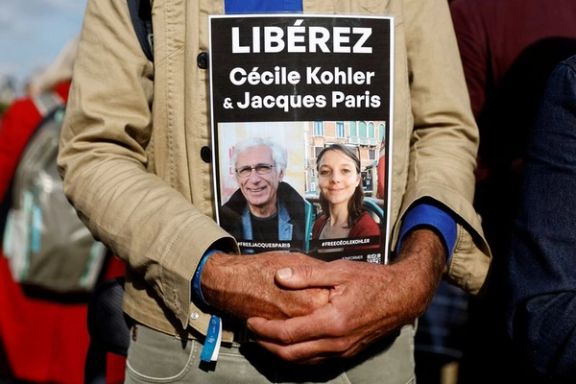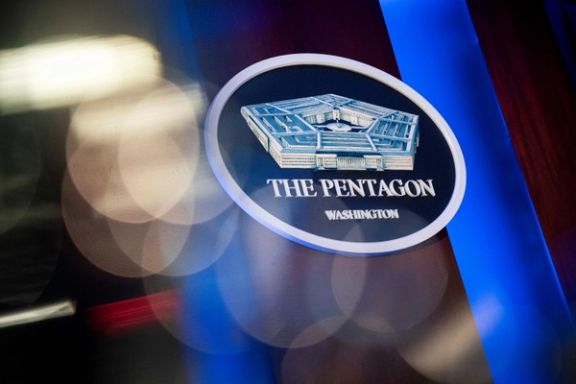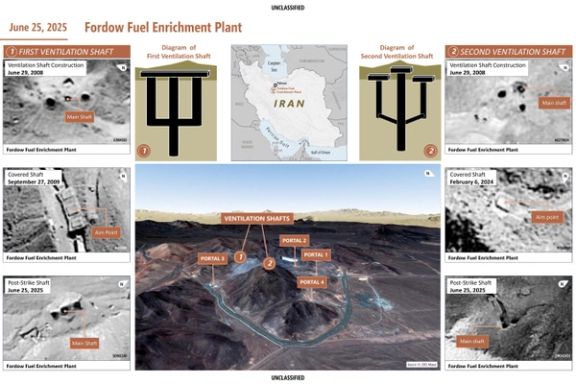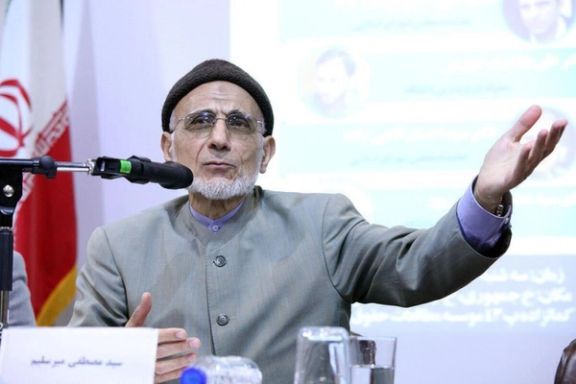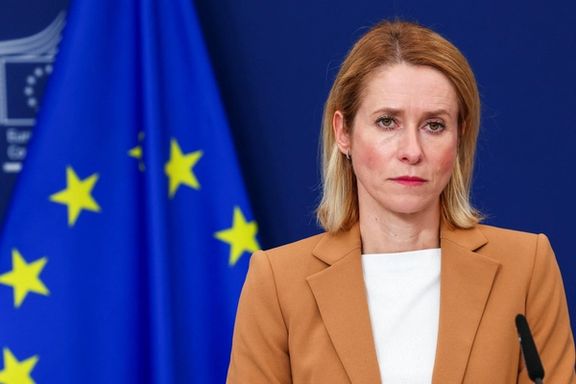Iran’s Jewish community has come under intensified pressure since the end of Israel's campaign, with members directly targeted by security forces.
Beni Sabti, who fled Iran as a teenager with his family and sought refuge in Israel, told Iran International that while rumors of mass executions of Iranian Jews are untrue, more than a dozen Jewish Iranians have been detained and interrogated under suspicion of espionage.
"This is purely antisemitic," said Sabti, a researcher at the Institute for National Security Studies (INSS) in Tel Aviv, specializing in Iranian affairs.
Many Jewish conscripts in Iran were allegedly forced to participate in public demonstrations of loyalty to the Islamic Republic following Israel’s strikes on military and nuclear sites.
According to the US-based Human Rights Activists News Agency (HRANA), Iranian authorities have summoned and interrogated at least 35 Jewish citizens in Tehran and Shiraz over alleged contact with relatives in Israel. A senior member of Tehran’s Jewish community told HRANA the interrogations are “unprecedented” and have triggered profound fear and uncertainty throughout the community.
"It's a kind of sacrifice," said Sabti, "The Islamic Republic knows the Jews are not involved in espionage. It's a play that they have to do and play that game of the regime to obey them and to let them interrogate them, and after that, they most probably are released."
Crackdown on Kurds
One of the hardest-hit communities is Iran’s Kurdish minority, according to Taimoor Aliassi, the UN representative of the Kurdistan Human Rights Association in Geneva.
“Since the beginning of the 12 days war, over 300 Kurdish citizens have been detained, five executed, one died under torture in prison in Kermanshah, another killed in the street and a Kolbar was also reported killed by border officials,” Aliassi told Iran International.
He said the Islamic Republic has multiplied checkpoints and intrusive controls at the entrances to Kurdish cities, accompanied by heavy deployments of military forces.
“It’s a state of emergency and the Islamic Republic is scared of popular uprising in Kurdistan which could lead to other parts of the country,” he added.
Baha'is and Baluch minority groups
Iranian security forces have also carried out widespread raids on the homes of Baha’i citizens during and after the conflict, IranWire reports.
Headquartered in Haifa, Israel, the Baha’i faith is Iran’s largest non-Muslim religious minority but it is not officially recognized by the Iranian government.
Baluch citizens from the restive province of Sistan and Baluchistan have also come under intensified targeting. The IRGC announced it had killed or detained 52 people in the southeastern province on charges of espionage for Israel.
Security forces opened fire on residents in the village in the region on Tuesday, according to the Haalvsh website. One woman, Khan-Bibi Bameri, was killed. Eleven other women — including four minors — were seriously injured. Two remain in critical condition.
Masking internal failures
Shahin Milani, director of the Iran Human Rights Documentation Center, told Iran International that these groups are being scapegoated to mask the Islamic Republic's internal failures.
“The Iranian government must know very well that Baha'is and Iranian Jews are not in the position to have access to classified information or to collaborate with Israel. Baha'is were purged from all public sector jobs after the 1979 Revolution," said Milani.
"Accusing them of espionage and other national security crimes serves only one purpose for the Islamic Republic: telling its supporters that it is doing something to address the massive security failures exposed by the war,” Milani said.
He added that these arrests reflect the Islamic Republic's inability to identify actual threats.
The Islamic Republic has also arrested leading activists such as freedom of speech advocate Hossein Ronaghi. Others, including rapper Toomaj and activist Arash Sadeghi, were reportedly beaten, arrested, and later released. Nationwide, at least 705 people have been arrested on political or security-related charges since the war began, according to HRANA.
The wave of repression has drawn parallels to the aftermath of the Iran-Iraq war, when thousands of dissidents were executed by the Islamic Republic.
“This is sadly a tried and true authoritarian tactic, and there are real fears emerging that the Iranian people may have a totalitarian terror in store for them like Saddam Hussein after his 1991 defeat,” said Behnam Ben Taleblu of the Foundation for Defense of Democracies’ Iran Program.
“Now that scope is expanding to foreign nationals as well,” Taleblu told Iran International.
Repression extends to foreign nationals
Iran has arrested several European nationals in various provinces over allegations they were "in some way cooperating with Israel" and has opened cases against them, the judiciary’s spokesperson said on Monday.
On Wednesday, AFP reported that French nationals Cécile Kohler and Jacques Paris, detained in Iran for three years, have been charged with “spying” for Israel.
Iranian authorities have also accused the pair of “conspiracy to overthrow the regime” and “corruption on earth”— which is punishable by the death penalty, the report said citing a French diplomatic source and family members.
Iran’s judiciary chief, Gholamhossein Mohseni Ejei, declared shortly after the war began that the trial and punishment of anyone arrested for alleged collaboration with Israel “should be carried out and announced very quickly.”
Iran’s parliament has recently passed a sweeping new law mandating the death penalty for anyone found cooperating with Israel, the US, or so-called “hostile groups”—while also criminalizing the use of tools like Starlink to bypass state internet controls.
Activists fear that unless checked, a new chapter of repression could once again engulf dissidents, women, and Iran’s most vulnerable minority groups.
